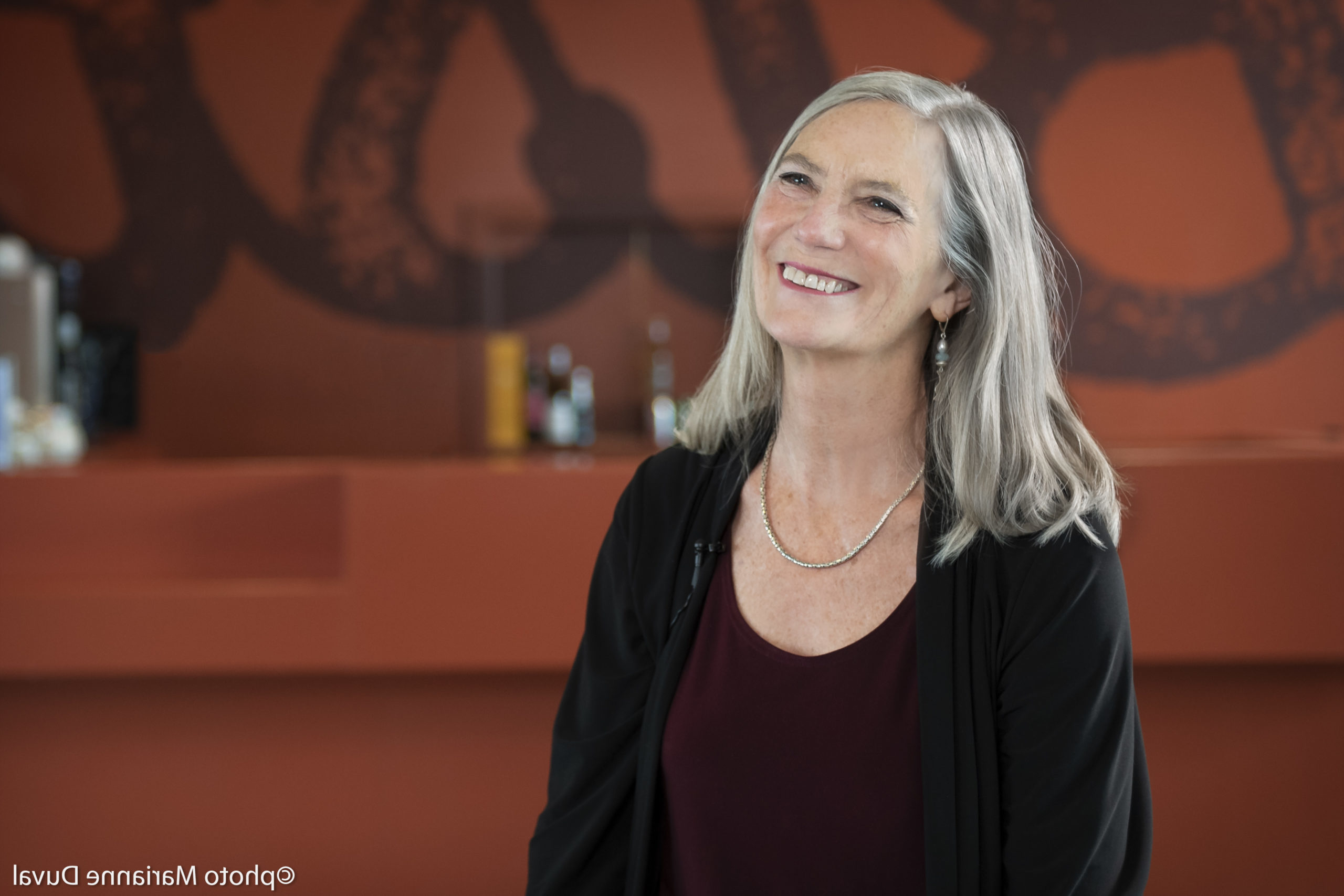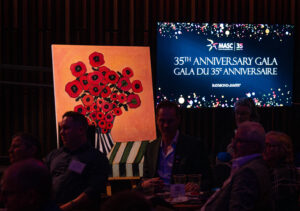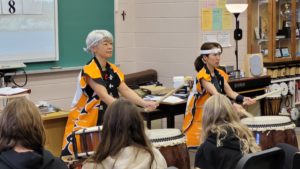Interview: Amanda West Lewis uses her writing to see the world from a child’s perspective
By Jessica Ruano | September 8, 2022

This interview was originally published on Apt613.ca
Amanda West Lewis is dedicated to words. Words on the page and words on the stage. Her eight books for children and youth range from non-fiction books to historical novels. She has a particular interest in creating historically relevant stories for young people. In this interview, Amanda talks about sharing her love of words when presenting workshops in theatre, writing, and calligraphy to children, youth, and adults.

Amanda West Lewis. Photo provided by MASC.
MASC: We were excited to learn last week that your manuscript Focus. Click. Wind. has been selected for a Society of Children’s Book Writers and Illustrators (SCBWI) 2020 Young Adult Work-in-Progress Award. Congratulations! Your novel is set during the Vietnam War. Why do you feel you are drawn to the environment of war in your work?
Amanda West Lewis: First of all, thank you – I must admit I was very excited to win this award. It is an international competition, and my manuscript was the only one selected in the Young Adult category. It’s a story that I am passionate about, so I am thrilled.
I don’t know that I set out to be “drawn” to writing about war, but the more I have studied and researched, the more I realize that wars have a profound impact on children.
Wars are fought over ideals and territories. Or at least, that is what adults tell each other. But children don’t have much of an experience of the world outside of their home environment. How can they possibly understand when an adult says that it is necessary to kill someone for a political ideology that is different from their own? We tell children to share, and then we tell them that people are being killed because they disagree over a land boundary.
What I am interested in is how to see the world through the perspective of children. That perspective is, I think, quite unique in times of crisis. Wars exemplify everything that we tell children not to do. How is it possible to live with that level of conflict as you are trying to understand the world around you?
MASC: You’ve also written historical novels and non-fiction books that focus on war from a child’s perspective, touching on propaganda, indoctrination, racism, and survival. What do you have to keep in mind when writing about harsh subjects for much younger audiences?
When we talk about “harsh subjects” I think that what we are actually saying is that we, as adults, do things that we are horrified by, for which we have little or no explanation. How on earth can we explain that to children in our care? Who can “explain” the Holocaust to a child?
We can’t hide these truths, but we don’t want to brutalize children. So I try to give everyone in my books a human face. I want to show that people make choices, and they have to live by the consequences of those choices. By putting horror—real, human horror—in a real, human context, and showing how people respond, I hope that I’m opening the door for a discussion. Because in the end, there are no answers to these questions, only good dialogues.
What drives me is my enormous respect for children and young adults. I value their perspective on the world and think we need to listen to them much more than we do. If we could do that, perhaps they could help us to make the world a better place.

Amanda West Lewis teaching a workshop. Photo provided by MASC.
MASC: The workshops you offer through MASC are as diverse as your many talents as a writer, theatre artist, and calligrapher! What do you think is the relationship between how words sound, what they mean, and what they look like? How do you describe this to participants in your workshops?
There is a direct relationship between the way we experience words and how we think. As a calligrapher, I am intimately involved with lines, shapes, and colours. These evoke responses in the viewer. What’s thrilling to me is that there is the additional element of literacy involved. Letters, put together, mean something.
But letters are, initially, sound. So I will often start a workshop with a vocal warm-up, to reconnect us to the sound of words. Humans come to speech naturally, and each of us owns the sounds that are familiar to us. However, reading and writing is something we must teach and each of us struggles with it in our own ways. By going back to our initial, personal experience of language, I think we can then move on to how we want to use it to express ideas, thoughts, and emotions on the page or on the stage.
MASC: Why do you think it’s important for our local community to have access to professional artists?
Professional artists have spent years refining their skills so that they can explore and experiment with ideas, big and small. Their work helps people articulate thoughts and feelings. Artists inspire, incite, excite, enrage, engage, and evoke new ways of looking at the world. They help us to embrace being human.
MASC: As a member of MASC, what do you gain through offering your workshops in schools and in the community? How has working with students inspired your broader practice?
I learn from every student I interact with. We all know that it takes someone from outside of our usual environment to help us to question what we take for granted. Young people help me to see what I should be asking questions about. They help me to see my own preconceptions and biases. They help me to see what matters to them, in their world. And I love what they teach me about how they use language and how they see their world. With luck, I am able to give them a few new tools and ideas so that they can tell their stories to the rest of us.
Latest News
View All Articles



